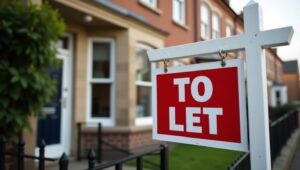The cost of living in London is one of the first considerations for expats planning a move. London is an exciting, opportunity-rich city, but its living costs can come as a bit of a shock for those who haven’t done their homework. With rent, transport, and groceries all consuming a sizable portion of monthly income, it’s essential to know what to expect.
Expats should also be prepared for the high cost of entertainment and dining out in London, as well as other expenses such as council tax and utilities. Despite the expense, many expats find the vibrant cultural scene, diverse food options, and convenient public transportation system to be worth the price tag. By creating a budget and sticking to it, expats can better manage their finances and fully enjoy all that London has to offer.
Rent: The Biggest Expense in London
Housing costs dominate most budgets, and London living costs are no exception. The rental market is highly competitive, and prices vary widely depending on location.
How Much Does Rent Cost?
One-Bedroom Flats *
- Central London: £2,600–£3,600 per month
- Outer Zones (3–6): £1,450–£2,300 per month
Two-Bedroom Flats *
- Central London: £3,800–£5,200 per month
- Outer Zones (3–6): £2,000–£3,200 per month
What Drives Rent Prices?
- Location: Proximity to central London pushes prices up. Commuter-friendly areas with fast transport links tend to be pricier.
- Property Type: New-build apartments often come at a premium compared to older flats or house shares.
- Demand: London’s rental market is very fast-moving, so prices reflect competition.
Given these factors, expats should weigh up whether convenience or affordability is the priority. Would a slightly longer commute be worth saving a few hundred each month?
Bills and Utilities: More Than Just Rent
Beyond rent, London expenses include essential household bills, of course:
Monthly Utility Costs
One-Bedroom Flat *
- Gas & Electricity: £100–£150 per month
- Water: £50 per month. This could be more if the property has a water meter.
- Council Tax: £100–£300 per month, depending on the property’s valuation band.
- Internet: £30–£50 per month
Two-Bedroom Flat *
- Gas & Electricity: £150–£200 per month
- Water: £55 per month. This could be more if the property has a water meter.
- Council Tax: £150–£350 per month
- Internet: £30–£50 per month
Can You Reduce These Costs?
- Energy-efficient homes tend to have lower bills. Checking a property’s EPC (Energy Performance Certificate) before renting can help reduce costs.
- Council tax discounts are available for single occupants.
- Broadband deals often include discounts for longer contracts, so choosing wisely can save money.
Transport: The Cost of Getting Around London
London’s public transport system is world-class, but it comes at a price.
- Zones 1–2 Travelcard: £171.70 per month. *
- Zones 1–6 Travelcard: £313.40 per month. *
For those commuting daily, this cost is unavoidable. However, some alternatives exist:
- Cycling: The Santander Cycles scheme allows for affordable, short-distance travel.
- Walking: If you live centrally, walking may be a realistic—and free—option.
Would living in a cheaper area further from the centre still be cost-effective after factoring in travel costs? That’s something worth considering when choosing where to live.
Food and Groceries: Daily Living Costs in London
Everyday essentials are another key part of the cost of living in London. Supermarkets vary in price, and shopping at budget-friendly stores like Aldi and Lidl can cut costs significantly.
Grocery Price Guide *
- Potatoes: £0.80–£1.20 per kilogram
- Tomatoes: £1.50–£2.50 per kilogram
- Onions: £0.70–£1.00 per kilogram
- Lettuce: £0.70–£1.00 per head
- Chicken fillets: £5.00–£7.00 per kilogram
- Ribeye steak: £14.00–£18.00 per kilogram
- Cheese: £6.00–£8.00 per kilogram
Supermarket choice plays a big role in how much you’ll spend. High-end stores like Waitrose tend to be pricier, while discount supermarkets offer better value.
Eating Out: Is London Expensive?
London’s food scene is world-renowned, but dining out can be costly.
- Inexpensive restaurant meal: £20 per person
- Mid-range restaurant (three courses for two): Around £80
That said, food markets and casual eateries provide more affordable options. Borough Market, Brick Lane, and Camden Market all offer high-quality meals at lower prices than traditional restaurants.
Entertainment and Leisure: Balancing Costs and Experiences
Beyond essentials, entertainment is another factor in London daily expenses. A night out or cultural experience adds to monthly budgets.
- Cinema ticket: £12–£18 *
- Theatre tickets: West End shows start at £25 but can exceed £150 for premium seats. *
- Gym membership: Ranges from £30 to £100 per month, depending on location and facilities. *
There are, however, plenty of free or low-cost experiences in London. Parks, galleries, and museums offer enriching activities without significant spending.
Final Thoughts on the Cost of Living in London
The cost of living in London is undeniably high, but careful planning helps manage expenses. Rent remains the biggest outlay, but factors like commuting distance, grocery shopping habits, and entertainment choices influence the overall budget.
For those considering a move, asking the right questions is key. What trade-offs make sense for your lifestyle? Is paying more for a central flat worth it if it saves time and travel costs?
Despite the high expenses, living costs in London are often justified by the opportunities available. Those who budget effectively can make the most of what the city has to offer—without feeling financially stretched.
* Prices indicative as of March 2025.
Speak to one of our experts or send a message today and find out how we can support your employee relocation programmes.






